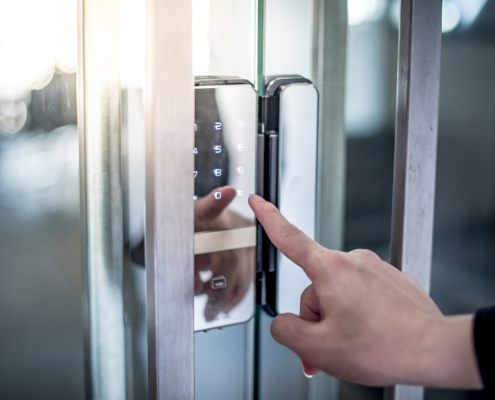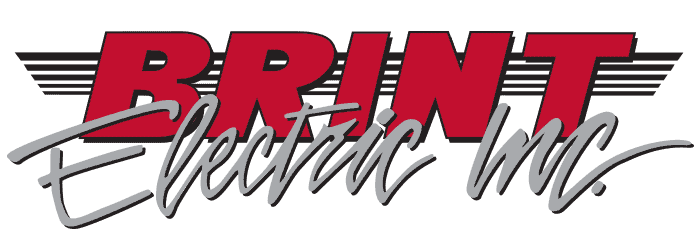 https://brintelectric.com/wp-content/uploads/2024/01/From-Access-Control-to-RFID-Cards_-Door-Security-Options-for-Your-Business.jpg
1250
2000
AbstraktMarketing
/wp-content/uploads/2022/09/brint-logo-transparent.png
AbstraktMarketing2024-01-19 16:28:052026-01-30 15:35:35From Access Control to RFID Cards: Door Security Options for Your Business
https://brintelectric.com/wp-content/uploads/2024/01/From-Access-Control-to-RFID-Cards_-Door-Security-Options-for-Your-Business.jpg
1250
2000
AbstraktMarketing
/wp-content/uploads/2022/09/brint-logo-transparent.png
AbstraktMarketing2024-01-19 16:28:052026-01-30 15:35:35From Access Control to RFID Cards: Door Security Options for Your BusinessHow to Find the Right Security Cameras for Your Business
Security is a top priority for any business, regardless of size or industry. Protecting your assets, employees, and customers is essential to maintaining a safe and secure environment. Installing a security camera system is one of the most effective ways to enhance security. However, selecting the right security camera system for your business can be daunting, as numerous options are available. This guide will help you navigate the key factors when choosing a security camera system tailored to your specific needs, whether you operate a small retail store or a large corporate office.
Assessing Your Business’s Security Needs
Before you start shopping for security camera systems, assessing your business’s security needs is crucial. A thorough evaluation will help you determine the type and number of cameras required to cover your premises effectively. Here are some key questions to ask during the assessment process:
What Is the Size of Your Business?
The size of your business plays a significant role in determining the number of cameras needed. Smaller companies may require fewer cameras, while larger establishments may need a more extensive camera network. Take the time to measure the square footage of your property to get an idea of the coverage area.
What Are Your Security Goals?
Clearly define your security goals. Are you looking to deter potential intruders, monitor employee activities, or both? Your goals will influence the type of cameras and features you require.
What Are the Key Areas to Monitor?
Identify the critical areas of your business that need monitoring. This might include entrances, parking lots, inventory rooms, cash registers, and outdoor spaces. Prioritizing these areas will help you decide where to install your cameras.
Dome Cameras
Dome cameras are popular for businesses due to their discreet and unobtrusive design. They are often used for indoor surveillance and can be easily mounted on ceilings. The dome shape makes it difficult for potential intruders to determine the camera’s direction.
Bullet Cameras
Bullet cameras are typically mounted on walls or ceilings and have a long, cylindrical shape that resembles a bullet, hence the name. They are easily recognizable and can act as a deterrent. Bullet cameras are ideal for monitoring outdoor spaces.
PTZ Cameras (Pan-Tilt-Zoom)
PTZ cameras can pan, tilt, and zoom, giving you greater control over the camera’s view. These cameras are excellent for monitoring large areas and can be controlled remotely to track and zoom in on specific subjects.
IP Cameras
IP (Internet Protocol) cameras are digital cameras that connect to a network, allowing for remote access and easy integration with other devices and systems. They are suitable for businesses that require advanced features like high-resolution video and remote monitoring.
Wireless Cameras
Wireless cameras connect to your network without the need for physical cables. They are often used for temporary installations or where running cables is impractical. Wireless cameras can be placed discreetly and are ideal for businesses with specific installation constraints.
Thermal Cameras
Thermal cameras detect heat signatures rather than relying on visible light. They are excellent for detecting movement in complete darkness or challenging weather conditions. Thermal cameras are often used in high-security environments.
Hidden Cameras
Hidden cameras are designed to be inconspicuous and can be disguised as everyday objects. They are commonly used for covert surveillance and are ideal for businesses that want to monitor without drawing attention to the cameras.
360-Degree Cameras
360-degree cameras, also known as fisheye cameras, provide a panoramic view of an area. They are excellent for monitoring large spaces with a single camera, reducing the number of cameras needed.
Camera Features to Consider
In addition to the camera type, there are various features to consider when selecting the right security camera system for your business:
Resolution
Resolution determines the quality of the video captured by the camera. Higher-resolution cameras provide clearer and more detailed footage. For most businesses, a camera with at least 1080p resolution is recommended.
Low-Light Performance
Consider cameras with good low-light performance if your business operates during nighttime hours or in low-light environments. Look for cameras with infrared illumination for better night vision.
Remote Viewing
Accessing camera feeds remotely through a smartphone or computer can be a valuable feature for business owners. Make sure the camera system you choose offers a user-friendly mobile app or web interface.
Storage Options
Consider how you will store your camera footage. Some systems use local storage (on-site), while others offer cloud-based storage. Determine which option best suits your business’s needs and compliance requirements.
Motion Detection
Motion detection can trigger camera recording when movement is detected within the camera’s field of view. This feature can help conserve storage space and make it easier to review relevant footage.
Video Analytics
Advanced cameras may offer video analytics features, such as facial recognition, license plate recognition, and object tracking. These can be beneficial for businesses with specific security requirements.
Installation and Maintenance
Proper installation and maintenance are essential for effectively operating your security camera system. While some businesses choose to install cameras themselves, it’s often best to hire a professional security camera installer for the following reasons:
- Expertise: Professionals have the knowledge and experience to install cameras in the most effective positions, ensuring maximum coverage and security.
- Compliance: Professional installers can ensure that your system complies with local laws and regulations regarding surveillance and data privacy.
- Maintenance: Regular maintenance and troubleshooting are crucial to keep your system running smoothly. Professionals can provide ongoing support to address issues and perform updates.
- Warranty: Many camera manufacturers offer warranties that are only valid if certified professionals install the cameras.
Brint’s knowledge and experience can help companies across any industry. Learn more about who we serve.
Get the Security Camera System You Need With Brint Electric
Partnering with a reputable commercial electric provider is vital for installing a security system that best suits your company’s needs. Our BISCI-certified data cabling team has over 50 years of experience to offer the best recommendations for businesses across multiple industries.
Contact us today to learn more about our security camera solutions.
Share This Post
More Like This
 https://brintelectric.com/wp-content/uploads/2024/01/From-Access-Control-to-RFID-Cards_-Door-Security-Options-for-Your-Business.jpg
1250
2000
AbstraktMarketing
/wp-content/uploads/2022/09/brint-logo-transparent.png
AbstraktMarketing2024-01-19 16:28:052026-01-30 15:35:35From Access Control to RFID Cards: Door Security Options for Your Business
https://brintelectric.com/wp-content/uploads/2024/01/From-Access-Control-to-RFID-Cards_-Door-Security-Options-for-Your-Business.jpg
1250
2000
AbstraktMarketing
/wp-content/uploads/2022/09/brint-logo-transparent.png
AbstraktMarketing2024-01-19 16:28:052026-01-30 15:35:35From Access Control to RFID Cards: Door Security Options for Your Business

